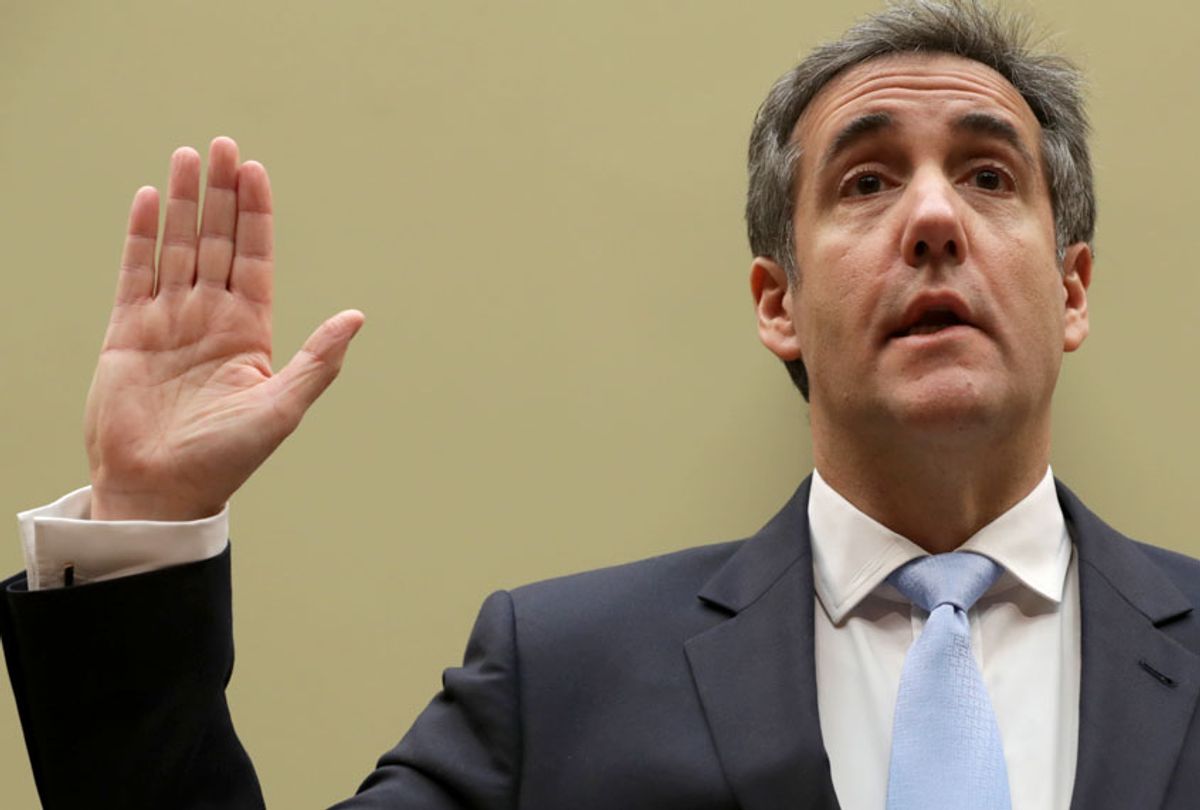Michael Cohen has told Manhattan prosecutors that he wouldn't cooperate in a future investigation of Donald Trump if he isn't indicted soon.
The former president's longtime personal attorney told The Daily Beast he would not testify again if prosecutors end this six-month grand jury term without bringing charges, which they must do by the end of this month.
"No," Cohen told the website. "I spent countless hours, over 15 sessions — including three while incarcerated. I provided thousands of documents, which coupled with my testimony, would have been a valid basis for an indictment and charge."
"The fact that they have not done so despite all of this … I'm not interested in any further investment of my time," he added.
Prosecutors have only until the end of the month to issue charges against the former president, or they have two other options: Ask grand jurors who have already served for six months to continue hearing evidence or make the entire presentation again before another panel of 23 jurors -- and they probably couldn't do that without Cohen's help.
Cohen's testimony is so important to the case that the entire investigation is named after him.
Court records made public last week show prosecutors have refer to the investigation as "The Fixer," which describes Cohen's relationship to Trump.
Trump had relied on Cohen to deliver hush money payments to former Playboy playmate-of-the-year Karen McDougal and adult film actress Stephanie Clifford, better known as Stormy Daniels, during the 2016 presidential campaign.
Former Manhattan district attorney Cy Vance Jr. convened a grand jury that sent an Aug. 1, 2019, subpoena to the Trump Organization demanding records about the hush money payments, after he realized New York prosecutors weren't going to prosecute the then-president for election violations and fraud.
Manhattan prosecutors met with Cohen that same month while he was at the federal prison in Otisville, New York, and eventually met with him three times while he was there, and he gave them detailed explanations of how the Trump Organization operated like the mafia.
His evidence helped prosecutors indict the the Trump Organization and its longtime accountant Allen Weisselberg for criminal tax fraud, but Weisselberg hasn't turned on his boss -- and attorneys for both Trump and his accountant have complained investigators have spent so much time talking to Cohen.
The grand jury hasn't been asked to indict Trump, because new district attorney Alvin Bragg Jr. has refused to sign off, which caused two top prosecutors to quit in protest, and investigators have begun to return evidence to witnesses.
However, New York law could allow prosecutors down the road to impanel another grand jury, but that carries risks -- whether or not Cohen agrees to participate.
"Generally speaking, re-presenting a case is logistically difficult and also long-term problematic for the case," said Alissa Marque Heydari, a former Manhattan assistant district attorney who now runs the Institute for Innovation in Prosecution at John Jay College of Criminal Justice. "You're creating more opportunity for impeachment of a witness. You now have a witness who has testified twice. Nobody is going to testify the same way every single time. The defense can say this person is clearly lying because they can't keep their story straight."




Shares